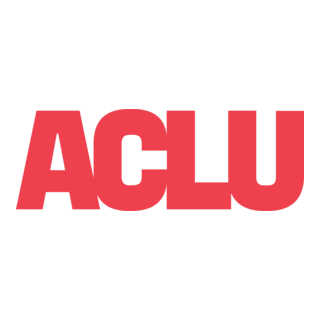Rhode Island ACLU Update: Files Lawsuit-Stop Trump From Imposing Unlawful Restrictions on Department of Justice/Office on Violence Against Women Grants Plus! RIDOC/ACI Suite Defending Native American Prisoners’ Religious Freedom

CHALLENGING NEW FEDERAL GRANT REQUIREMENTS,
ACLU OF RI, LAWYERS’ COMMITTEE FOR RI AND NATIONAL ORGANIZATIONS SUE ON BEHALF OF
RI COALITION AGAINST DOMESTIC VIOLENCE, NATIONAL COALITIONS
(Statements Issued by the Rhode Island Chapter of the American Civil Liberties Union)
New Requirements Threaten Support for Victims of Violence
A nationwide group of 17 state domestic violence and sexual assault coalitions, led by the Rhode Island Coalition Against Domestic Violence (RICADV), filed a lawsuit today seeking to stop the Trump administration from imposing unlawful restrictions on grants issued by the Department of Justice’s Office on Violence Against Women (OVW) under the federal Violence Against Women Act (VAWA).
The lawsuit, filed in U.S. District Court in Rhode Island, challenges new restrictions on grant funding for domestic and sexual violence prevention services that the lawsuit claims make it impossible for many of the service providers to operate critical safety programs effectively, threatening to eliminate services that victims of violence rely on in neighborhoods throughout the country. The suit was filed by local attorneys representing the ACLU of RI and the Lawyers’ Committee for RI, as well as Democracy Forward, Jacobson Lawyers Group, and the National Women’s Law Center.
Among other restrictions, the new requirements for grant funding bar RICADV and the other organizational plaintiffs from promoting “gender ideology” or any diversity, equity, and inclusion (DEI) programs “that do not advance the policy of equal dignity and respect.” The organizations are also barred from engaging in “activities that frame domestic violence or sexual assault as systemic social justice issues rather than criminal offenses,” and from “promoting” the “violation of federal immigration law.”
The lawsuit argues:
Defendant’s imposition of the [funding conditions] place Plaintiffs and their members in an impossible position. They must choose between forgoing funding essential to their ability to fulfill their missions—and in some cases to their ability to operate at all—and accepting and certifying compliance with conditions that are in tension with their statutory duties, unlawfully vague, restrictive of speech, in violation of other constitutional and statutory requirements, and at odds with their values and missions.
For example, Plaintiffs fear that their efforts to implement VAWA’s protections for the undocumented people they serve could be seen as “promoting” violations of federal immigration law. They fear that refusing to discriminate based on gender identity—a requirement of their OVW grants and VAWA itself—could be viewed as promoting “gender ideology.” And they fear the chilling effect that the certifications will have on their ability to carry out their missions.
The Trump Administration has warned groups applying for the grants that they could be subject to substantial penalties under the federal False Claims Act if they violate any of the grant conditions. However, the lawsuit points out that organizations receiving funding under VAWA have “statutory obligations to ensure that victims are not subjected to discrimination, to provide services to underserved populations, and to include services that are ‘primarily directed’ toward racial and ethnic minority groups,” and they would therefore have to alter their programming in ways that would violate VAWA itself.
Imposition of these restrictions would be felt locally in Rhode Island. RICADV, a nonprofit domestic violence membership organization made up of 10 agencies, has received Coalition Grant funds from OVW for over two decades. Under those grants, Congress prescribes a specific amount of money to be distributed to each state-recognized domestic violence and sexual assault coalition, such as RICADV. Without the funds, RICADV would be unable to provide the same level of support and education to domestic violence victims and the community that it currently provides.
“Without access to this funding, vital programs that keep Rhode Islanders safe and keep our state at the forefront of addressing domestic violence are at risk, including RI’s first Safe Exchange and Supervised Visitation Center for families experiencing domestic violence,” said Lucy Rios, executive director of the Rhode Island Coalition Against Domestic Violence (RICADV). “The frameworks that inform our mission and the knowledge and research from our field are also at risk. Domestic violence is unequivocally a public health and social justice issue. We refuse to renounce this understanding that is central to our work. We strive to be as courageous and resilient as the survivors in our communities as we stand up to protect the safety net for victims and infrastructure for prevention that we have been collectively building for nearly 50 years.”
“By requiring organizations and coalitions to attest to certifications that run counter to their very missions, in addition to potentially violating state and federal law, the federal government is prioritizing political ideologies over the funding of critical support for vulnerable people in our communities,” said Steven Brown, Executive Director of the ACLU of Rhode Island. “We stand firm in our challenge to this set of requirements.”
“Nearly 1 in 2 Rhode Islanders have experienced domestic violence. RICADV, its member agencies, and the other coalitions across the country protect countless people, including children, from the dangers and consequences of domestic violence and sexual assault,” said Amy Romero, Chief Legal Counsel of Lawyers’ Committee for Rhode Island. “The certification requirements imposed on domestic violence agencies are unlawful, unconstitutional and jeopardize these agencies’ ability to provide essential and life-saving services to victims and survivors here in Rhode Island and nationwide. The Lawyers’ Committee for Rhode Island is proud to represent RICADV and coalitions across the country who are standing firm in their organizations’ mission and challenging the Trump Administration’s actions.”
Among other claims, the lawsuit argues that the OVW prohibitions violate the First Amendment, are unconstitutionally vague, and contravene the Administrative Procedure Act, a law that prohibits “arbitrary and capricious” federal agency actions.
Besides RICADV, the group of state domestic violence and sexual assault coalitions participating as plaintiffs in the case includes the California Partnership to End Domestic Violence, Colorado Coalition Against Sexual Assault, DC Coalition Against Domestic Violence, End Domestic Abuse Wisconsin: The Wisconsin Coalition Against Domestic Violence, Idaho Coalition Against Sexual and Domestic Violence, Iowa Coalition Against Domestic Violence, Jane Doe Inc., The Massachusetts Coalition Against Sexual Assault and Domestic Violence, Kansas Coalition Against Sexual and Domestic Violence, Montana Coalition Against Domestic And Sexual Violence, North Carolina Coalition Against Domestic Violence, Oregon Coalition Against Domestic and Sexual Violence, Pennsylvania Coalition Against Domestic Violence, ValorUS, Violence Free Minnesota, Virginia Sexual and Domestic Violence Action Alliance, and the Wisconsin Coalition Against Sexual Assault.
The coalition is represented in the matter by Democracy Forward, Jacobson Lawyers Group, Lynette Labinger for the ACLU of Rhode Island, the National Women’s Law Center, and Amy Romero of DeLuca, Weizenbaum, Barry & Revens, Ltd. for the Lawyers’ Committee for Rhode Island.
complaint_-_ricadv_v._bondi
ACLU AND RWU LAW SCHOOL CLINIC SUE AGAIN OVER ACI’S FAILURE TO ACCOMMODATE NATIVE AMERICAN PRISONERS’ RELIGIOUS FREEDOM
Just weeks after the ACLU of Rhode Island and the RWU Law Prisoners’ Rights Clinic announced the favorable settlement of a lawsuit that challenged the R.I. Department of Corrections’ (RIDOC) refusal to accommodate the religious practices of a Native American prisoner to wear a religious headband, the two groups have filed a similar but broader suit on behalf of three other Native Americans at the ACI.
The lawsuit, filed by Jared Goldstein, Director of the RWU Law Prisoners’ Rights Clinic, and ACLU of RI cooperating attorney Lynette Labinger, argues that RIDOC has refused to accommodate an array of religious practices that Native Americans are routinely allowed to practice in federal and state prisons across the country. They include the right to hold communal prayer services and other religious ceremonies, to have access to a Native American elder to provide religious guidance, and the ability to obtain religious items that express their religious traditions, including medicine bags and dreamcatchers.
All three of the plaintiffs – Tyler Smith, Kyle Moreino, and Joseph Shepard – are of Native American ancestry and adherents to Native American religious traditions. The lawsuit documents their numerous unsuccessful efforts to get RIDOC to accommodate their religious beliefs. As the suit succinctly lays out the issue:
[P]rison systems around the country have adopted comprehensive policies for accommodating the religious practices of Native Americans, under which incarcerated individuals have access to a spiritual counselor, typically a Native elder; the opportunity to participate in religious ceremonies, including pipe ceremonies, sweat lodge ceremonies, smudging ceremonies, drum circles, and powwows; and the opportunity to obtain religious items, including medicine bags, feathers, and dream catchers.
In contrast, RIDOC has adopted no policies for accommodating Native American religious practices. It has created no opportunities for Native American prisoners to receive spiritual guidance from a Native American elder. It does not allow incarcerated people to participate in any Native American religious ceremonies. It does not allow Native American prisoners to obtain Native American religious items.
This is not a new problem. For years, Native American prisoners have complained about the absence of any religious accommodations at the ACI, but RIDOC has ignored those concerns.
The suit was brought under the Religious Land Use and Institutionalized Persons Act, a federal law that bars states from imposing any substantial burden on a prisoner’s exercise of religion unless it furthers a compelling interest and is the least restrictive means available. The suit seeks a court order requiring RIDOC to accommodate the prisoners’ religious beliefs that have been denied them as laid out in the complaint.
In the lawsuit involving another Native American prisoner that was settled last month, RIDOC had initially refused to allow Wolf Pawochawog-Mequinosh to wear an Apache headband, even as it allowed Muslim and Jewish prisoners to wear kufis and yarmulkes. In response to that suit, RIDOC relented and allowed him to obtain and wear the desired headband, but they did not agree to any similar accommodations for other prisoners.
Attorney Goldstein said today: “We call on the Department of Corrections to fulfill their obligation to accommodate the religious needs of Native Americans imprisoned at the ACI, who for years have been denied all opportunities to observe their religious traditions.”
ACLU of RI cooperating attorney Lynette Labinger added: “We have brought suit once again to ensure that incarcerated persons who follow religious traditions of Native Americans are able to practice their religion behind bars and that their efforts to do so are not ignored or disrespected. Federal law and the First Amendment require that even in prison, the custodians do not get to dictate what is an accepted religion and how it should be practiced.”
complaint_-_ricadv_v._bondi



